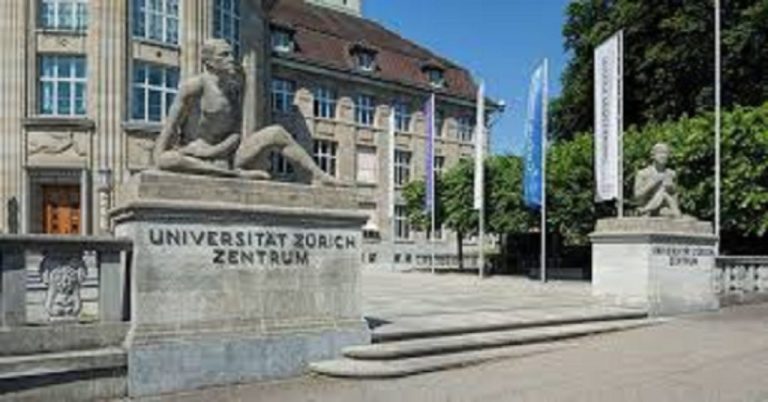
The Light & Matter Physics Division conducts both fundamental and applied research across multitude scientific fields, with a strong focus on energy-related materials. The Ph.D. candidate will join the Sustainable Materials Research & Technology (SMaRT) group, dedicated to advancing the understanding of intrinsic properties in a range of materials, from alkaline battery components to photovoltaic solar cells. Research involves extensive experimental work performed in state-of-the-art in-house laboratories and at large-scale facilities, supported by a productive collaboration with theoretical researchers. The Ph.D. candidate will also be part of the WISE Graduate School.
Primary Responsibilities: In this role, you will investigate the fundamental properties of tin-based 2D hybrid organic-inorganic halide perovskite (HOIP) nanomaterials, employing advanced X-ray, neutron, and muon techniques alongside cutting-edge theoretical methods. Key responsibilities include drafting beamtime proposals, traveling to conduct experiments, performing comprehensive data analysis, and communicating findings through presentations at international conferences and publications in scientific journals. You will also develop innovative research ideas and complete required coursework. Active collaboration with MSc students, fellow Ph.D. candidates, and postdoctoral researchers is expected to foster a dynamic research environment.
Supervision: Yasmine Sassa and Martin Månsson is proposed to supervise the doctoral student. Decisions are made on admission
What we offer
- The possibility to study in a dynamic and international research environment in collaboration with industries and prominent universities from all over the world.
- A workplace with many employee benefits and monthly salary according to KTH’s Doctoral student salary agreement.
- A postgraduate education at an institution that is active and supportive in matters pertaining to working conditions, gender equality and diversity as well as study environment.
- Work and study in Stockholm, close to nature and the water.
- Help to relocate and be settled in Sweden and at KTH.
Admission requirements
To be admitted to postgraduate education (Chapter 7, 39 § Swedish Higher Education Ordinance), the applicant must have basic eligibility in accordance with either of the following:
- passed a second cycle degree (for example a master’s degree in Physics, Material Physics, Applied Physics, Solid-State Chemistry) or
- completed course requirements of at least 240 higher education credits, of which at least 60 second-cycle higher education credits, or
- acquired, in some other way within or outside the country, substantially equivalent knowledge
- Proven/Documented experience in hands-on laboratory work.
In addition to the above, there is also a mandatory requirement for English equivalent to English B/6.
Selection
In order to succeed as a doctoral student at KTH you need to be goal oriented and persevering in your work. During the selection process, candidates will be assessed upon their ability to:
- independently pursue his or her work
- collaborate with others,
- have a professional approach and
- analyse and work with complex issues.
- Problem solving analytical approach,
- Stable/able to withstand stress,
- Experience from in-house materials characterization tools (diffraction, spectroscopy, TEM, magnetic susceptibility/PPMS/MPMS etc.) as well as knowledge about large-scale facilities, are all considered a plus
- Very good knowledge of English, some experience in programming (e.g. Matlab, python)
- Work within an international collaboration, i.e. adaptive communication skills & social dexterity is important
After the qualification requirements, great emphasis will be placed on personal skills.
Target degree: Doctoral degree
Information regarding admission and employment
Only those admitted to postgraduate education may be employed as a doctoral student. The total length of employment may not be longer than what corresponds to full-time doctoral education in four years ‘ time. An employed doctoral student can, to a limited extent (maximum 20%), perform certain tasks within their role, e.g. training and administration. A new position as a doctoral student is for a maximum of one year, and then the employment may be renewed for a maximum of two years at a time. In the case of studies that are to be completed with a licentiate degree, the total period of employment may not be longer than what corresponds to full-time doctoral education for two years.
Union representatives
Contact information for union representatives.
Doctoral section (Students’ union on KTH Royal Institute of Technology)
Contact information for doctoral section.
To apply for the position
Apply for the position and admission through KTH’s recruitment system. It is the applicant’s responsibility to ensure that the application is complete in accordance with the instructions in the advertisement.
Applications must be received at the last closing date at midnight, CET/CEST (Central European Time/Central European Summer Time).
Applications must include the following elements:
- CV including your relevant professional experience and knowledge.
- Application letter with a brief description of why you want to pursue research studies, about what your academic interests are and how they relate to your previous studies and future goals. (Maximum 2 pages long)
- Copies of diplomas and grades from previous university studies and certificates of fulfilled language requirements (see above). Translations into English or Swedish if the original document is not issued in one of these languages.Copies of originals must be certified.
- Representative publications or technical reports. For longer documents, please provide a summary (abstract) and a web link to the full text.
- Recommendation letters/contact information, for at least 2 reference persons.
Other information
Striving towards gender equality, diversity and equal conditions is both a question of quality for KTH and a given part of our values.
For information about processing of personal data in the recruitment process.
According to The Protective Security Act (2018-585), the candidate must undergo and pass security vetting if the position is placed in a security class. Information regarding whether the position is subject to such a classification will be provided during the recruitment process.
We firmly decline all contact with staffing and recruitment agencies and job ad salespersons.
Disclaimer: In case of discrepancy between the Swedish original and the English translation of the job announcement, the Swedish version takes precedence.
About KTH
KTH Royal Institute of Technology in Stockholm has grown to become one of Europe’s leading technical and engineering universities, as well as a key centre of intellectual talent and innovation. We are Sweden’s largest technical research and learning institution and home to students, researchers and faculty from around the world. Our research and education covers a wide area including natural sciences and all branches of engineering, as well as architecture, industrial management, urban planning, history and philosophy. Read more here



